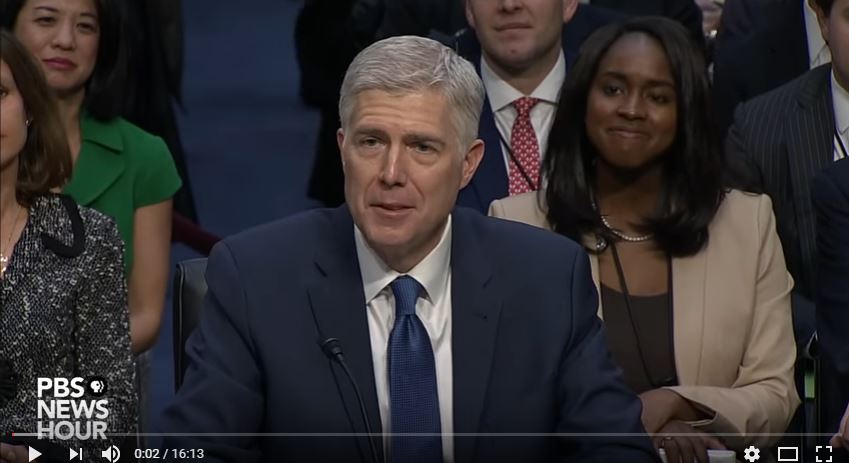By Dave Workman
Senior Editor
The confirmation of Judge Neil Gorsuch to the Supreme Court became something of a foregone conclusion when the U.S. Senate, on a party line vote, invoked the “nuclear option” by restoring the straight simple majority requirement to confirm nominees.
The mainstream press immediately reported the action as “a dramatic rule change that could deepen partisan divisions and put more ideologically extreme justices on the court.”
But the “nuclear option” was itself a departure from the tradition of confirmation by simple majority, essentially invented by Democrats in 2013 under former Sen. Harry Reid, the Nevada Democrat who was majority leader at the time. Here is how the Washington Post reported it that year when Democrats took action to push through Barack Obama’s nominees:
“Democrats used a rare parliamentary move to change the rules so that federal judicial nominees and executive-office appointments can advance to confirmation votes by a simple majority of senators, rather than the 60-vote supermajority that has been the standard for nearly four decades.”
Perennial anti-gun Sen. Charles Schumer (D-NY) had led a filibuster effort to prevent the Gorsuch confirmation, according to NPR. He had argued that Gorsuch’s nomination should be withdrawn so the Senate can consider a nominee more acceptable to Democrats. Thursday’s action could easily be called an “object lesson” for Schumer.
Texas Sen. John Cornyn, in remarks on the Senate floor following the vote, said, “It’s been a long journey back to the normal functioning of the United States Senate.”
He called the Democrats’ filibuster “pointless.”
The vote was a defeat for Schumer and his Democrat colleagues in more ways than one. The rules are now changed for every future confirmation vote, and the Supreme Court balance has been restored so that it is less likely to see an “activist court” anytime in the future.
NPR quoted Schumer claiming that, “It’s on (Republican Sen. Mitch McConnell’s) shoulders and only on his shoulders” if the Republican majority invokes the so-called “nuclear option” that would change the rules to allow confirmation by a simple 51-vote majority.
But that’s historically inaccurate. The “nuclear option” was employed by Democrats under Reid to push through several of Barack Obama’s nominees to the lower federal courts.
At the time, Politico quoted Obama stating something that could easily apply today:
“This isn’t obstruction on substance, on qualifications. It’s just to gum up the works.”
Today, Schumer and his cronies were gumming up the works until Senate Majority Leader Mitch McConnell pulled their plug.
Pundits have suggested that this was all because the Democrats had expected to be in control on Capitol Hill this year, with Hillary Clinton in the Oval Office making the high court nomination.
A recent Rasmussen survey found that nearly half of likely voters “believe opposition to President Trump’s first Supreme Court nominee is due mostly to partisan politics.”
With Gorsuch on the Supreme Court bench Second Amendment advocates can breathe a little easier, but only a little.
American gun owners cheered the Heller ruling nearly nine years ago because it affirmed that the Second Amendment delineates an individual right to keep and bear arms. That ruling, authored by the late Justice Antonin Scalia, whom Gorsuch will replace if confirmed, vindicated gun rights organizations that had argued vigorously for years against the so-called “collective interpretation” of the amendment as protective only of a state’s right to organize a militia.
Two years later, the McDonald ruling that nullified Chicago’s handgun ban and incorporated the Second Amendment to the states – a Second Amendment Foundation case – solidified the individual right interpretation. Changing the high court majority could easily jeopardize those rulings, and based on some lower federal court rulings, there still appear to be some judges who may not accept the Supreme Court’s wisdom.
President Donald Trump has the opportunity to level the lower court playing field. He’s got some 100 empty seats to fill.




